
Living Better In The Age Of Notifications
Shreya Dalela,
How to be less distracted by your phones and pay more attention
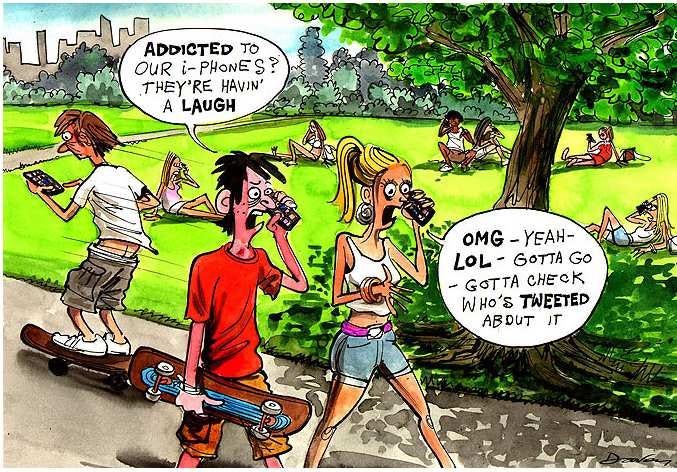
When I set out to write my previous article about how notifications are affecting our mental health, I felt that a lot of people won’t like me talking so negatively about something that is now so deeply engraved in our lives.
However, I was taken aback by the kind of response and readership it received. It was among Medium’s most recommended articles. People from all over the world were tweeting about it.
This is the follow up article and it talks about minimising distractions through phone and increasing your attention span in order to work better and more importantly, to live your life more mindfully.
It’s easy to talk about mindfulness and productivity but it’s way harder to implement those things. Once you start paying attention to your behaviour, you begin to see that — You are always more distracted than you think you are.
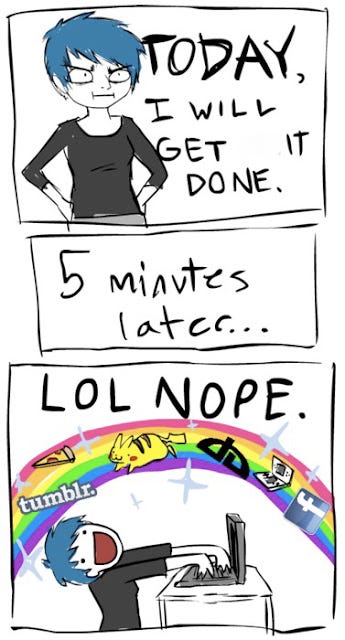
So, I am not going to make a list 10 things you CAN do. It almost never works for me. Instead, I will walk you through the process that I recommend that you follow step-by-step. I leave it upto you to customise it according to your needs. It involves the following steps.
- Becoming aware of your phone usage habits
2. Turning off triggers
3. Setting up response time for each channel
4. Exercising your brain muscles for longer attention spans
5. Replacing old habit loops with healthier and better ones
1. Becoming aware of your phone usage habits
The one thing that is going to help you is asking this one question to yourself repeatedly : Is it really so important?
Think about it. Is it really that important to read all the mails just when they arrive and to respond to them immediately? Is it really important to check notifications repeatedly every minute or so after you post a picture/article/video or anything else online? Does every Whatsapp message require a response right away? Can nothing wait?
Start by tracking your phone usage by tracking Apps such as Moment or BreakFree. You will get to know how many times you pick up the phone everyday and how many hours you spend on it.
Without the realisation of where you are going wrong, it’s hard to improve.
For me realising that I am spending 4 hours on phone every day and picking it up 80–100 times, when I used to think that I am ‘not that distracted’ was a turning point.
Also, become aware of where exactly you spend your time on phone. Do you just pick up your phone mindlessly and switch between apps for no reason? Do you check Instagram 50 times a day? Which apps occupy your attention? How many notifications bother you throughout the day? Do you take it to the washroom?
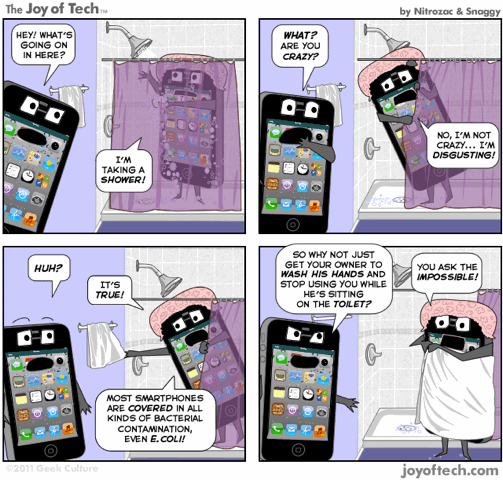
Spend a day just observing yourself. Become aware of the triggers, your actions and your habit loops with phone usage.
Do you reach out for your phone every time you are free? Do you have a tendency to forget things that you were asked to do because you didn’t really listen to it well and register it on your mind? What all activities is your phone interfering with? Are you sleeping late because of it? Is it the first thing you spend time on in the morning?
Now you need to understand this.
With this new found awareness about your phone usage, you might start realising how things will actually be better if you could spend that time on something else that is more beneficial for you, things you say you have no time for. Think about how your mind would actually become free to think deeper about other important things if it wasn’t this distracted.
Think about how wonderful it would be to have less mental fatigue and more energy to do things that really inspire you and are more meaningful to you.
Inspiring thought right? But how do you get there?
That’s what the second step is all about.
2. Turning off triggers
Did you know that push notifications are just as distracting as phone calls? A recent study at Florida State University which tested over 150 students through an experiment concluded this. It says that even the vibration or the beep of the notification splits your attention even if you force yourself to ignore it.
You will definitely spend a few seconds thinking about. Attention is split and context is switched and you have to spend some energy in getting your mind back to work.
And we have all been there. In fact, we are so used to these triggers that we all reach for our phones when one person in the room receives a notification. We even imagine our phones vibrating when they are in our pockets.

How about turning it all off ? Yes. All of it. Except calls of course. If something is really urgent, people can reach you over a call. If your work really demands you to be active at all times on a platform such as Slack or Mail, you could include that as well. But really, that’s it.
What will happen to all the messages and mails then? Well, they are all still reaching your phone. You will look into them when you CHOOSE to look at them, mindfully.
And believe me, that will make all the difference.
Turning off triggers also means that you put the most distractive apps at the last screen on your phone and ensure that only the most useful apps occupy your attention. It also means that you don’t allow apps to send you push notifications unless they really matter to you.
For instance, I let my meditation app send me a notification because it acts like a reminder. However, none of the shopping apps, food apps or social media apps are allowed to send me push notifications.
Having only the most important notifications on will ensure that every time your phone beeps it’s actually something that deserves your attention.
Tristan Harris who was previously a Design Ethicist at Google and left the company to lead Time Well Spent, a non-profit movement to align technology with our humanity, strongly recommends turning off notifications.
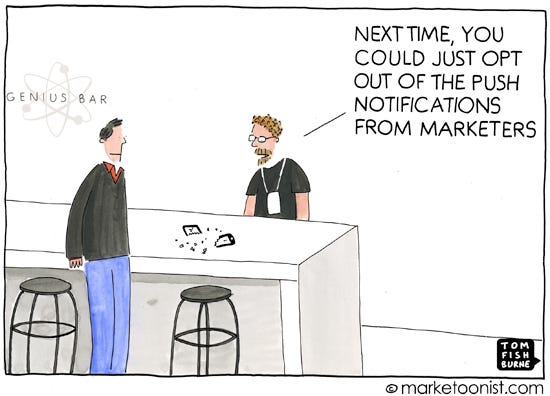
But what if I miss out on something? That’s what the third step is all about.
3. Setting up response time for each channel
What this means is that you, based on how important you think the notifications from different channels are, set up an estimated time of response.
Like you could check and respond to mail every 24 hours, to your Whatsapp/Messenger/Slack notifications every 2–3 hours, and so on.
And there is only one rule to follow, you don’t check your phone to respond to any of these at any other time except the hour you devote to these platforms.
If there is anything urgent, people will call.
You will feel you are missing out on something. That’s not really true. You are spacing out your interactions by 2 hours ONLY. It’s no big deal.
In fact, this will ensure that you don’t read a mail/message and then forget about it the way it happens when you keep receiving notifications all the time. When you attend to them, just attend to them with complete attention and respond to them.
Same goes for the social media channels as well.
Splurge one hour on notifications, on replying to messages, social media updates and switching betweens apps ALL AT ONCE. Let that be the reward to your brain instead the constant mindless switching. Do that multiple times a day if you have to and then gradually decrease.
The disappearing stories stay for 24 hours so even if you just check them at one time every day, you will not lose anything. You can refresh your Facebook feed twice or thrice to get different versions of feeds and that will ensure you don’t miss anything there.
The point is that you won’t lose on anything by checking less often.
Not everything is important. It just seems like it is.
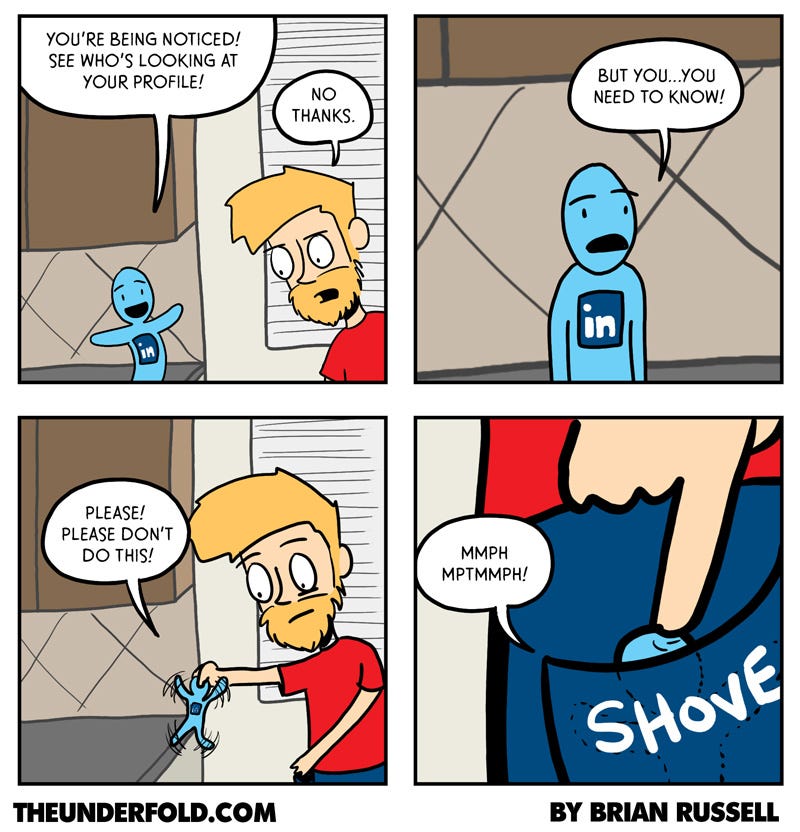
So just setup a response time for the message channels and put a check on mindless scrolling through feed every hour.
4. Exercising your brain muscles for longer attention spans
When I talk about turning off triggers and setting up a response time, I am well aware that it’s not easy. Once you sit down to work or do anything important, there will be a lot of noises in your head and there might be a compulsive feeling to check phone. You would want to do that.
Our brains our getting less and less accustomed to silence and more and more addicted to noise.
So when you deprive yourself from that constant noise that it likes to feed on, it might feel unusually silent and uncomfortable.
But the entire point is to grow comfortable with that silence and to exercise your minds not only to adapt to it but to work better during that distraction free span.
How do you do that?
Just start practicing on working with undivided attention. There are apps like Focus Keeper and Forest which help you that. Forest doesn’t allow you to access your phone when the app is on until the timer runs out. You need to ‘give up’ and kill the growing sapling in order to do it. The Focus Keeper helps you use the famous Pomodoro technique to help you focus for spans of 25 mins each.
There a lot of apps like these and they are effective if used well.
It will be uncomfortable at first. You will suddenly remember other important things that you would want to do instead. Don’t act on it. Keep a diary, note things in that but don’t get distracted. Challenge yourself to work at stretch on only ONE thing.
Apart from that, all physical activities and sports are great for building focus and increasing attention spans. Yoga works really well for me because it actually involves paying attention to the breathing which helps you become more mindful.
The idea is to put your brain into something and to focus completely. Even if it’s something simple like painting for fun for one complete hour without ANY distraction.
And do that often. The more you exercise this, the better you will become.
Srinivas Rao, author of famous book Unmistakable Creative and one of the most widely read author on Medium wrote this amazing piece about he gets shit done despite his Attention Deficit Disorder.
5. Replacing old habit loops with healthier and better ones
What could you possibly replace your habit of responding to notifications and mindless scrolling of feed with?
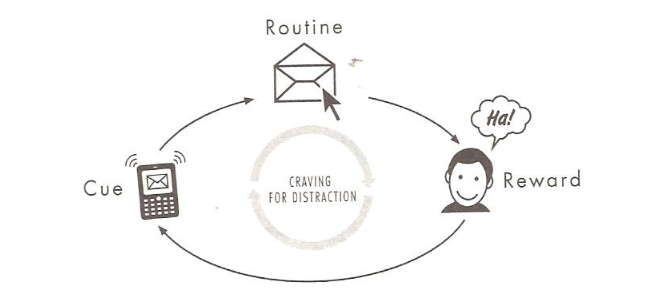
Are there other things that you like to do? Can you set up positive feedback loops involving working on it so that you keep coming back to it instead of your phone?
There must be things in your life worth paying attention to, things that will motivate you.
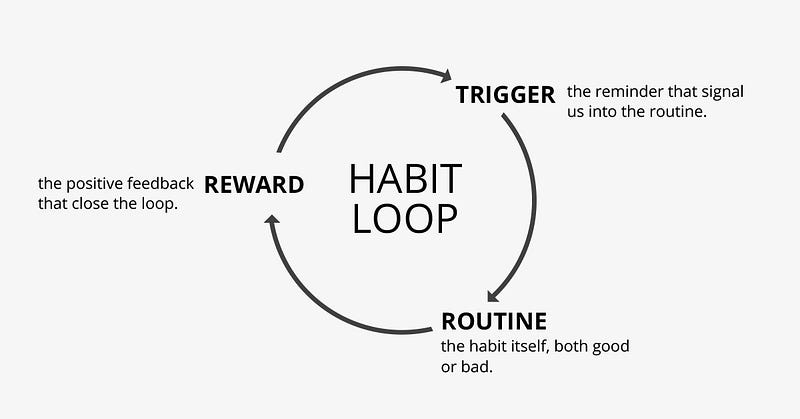
For instance, are you enthusiastic about trying new healthy breakfast recipes every day? Set a reminder for it. Use this new found window of 30 minutes in your day to plan for your breakfast the next day. And when you will make it and consume it the next day, you will have a feeling of accomplishment that will motivate you do it again. You could have reminder for it at the same time every week. If you continue doing that for a week or more, you might succeed in establishing one positive change.
You can use notification triggers, something that your mind is accustomed to giving attention to, to establish positive routines. Be creative with them. Work on developing one or two good habits through it.
Similarly, instead of staring at your phone before sleeping, you could read a book for 30 minutes before sleeping or write in your journal or do anything that according to you concludes the day well and gives you a feeling of accomplishment.
In the morning, rather than reaching out for your phone, just get out of the bed, go for a run, sweat it out. Similarly, try to develop a habit of actually calling/meeting friends you care to keep in touch with. Let that be another positive change.
Only you can figure out what alternative patterns will work the best for you.
It’s just about replacing old negative habit loops with healthier ones but since there is comfort in old ways, change is going to be hard.
DO IT anyway like your life depends on it. Because IT DOES. Because your life is slipping by, one notification at a time.
I would recommend that you watch this TEDx Video by Carl Newport who has an even stronger take on this issue. In his most recent book, Deep Work, he argues that focus is the new I.Q. in the modern workplace and that the ability to concentrate without distraction is becoming increasingly valuable.
If you found this helpful, please help in spreading this message by recommending this post. Also, feel free to share your own ideas about this in the responses below. Thanks for reading :)
I am Shreya Dalela, co-Founder at Speaking Walls, an art-inspired lifestyle brand. I write on topics related to mental health and psychology. Through my writings, I aim to spread awareness, inspire and support people who are on a similar journey.
